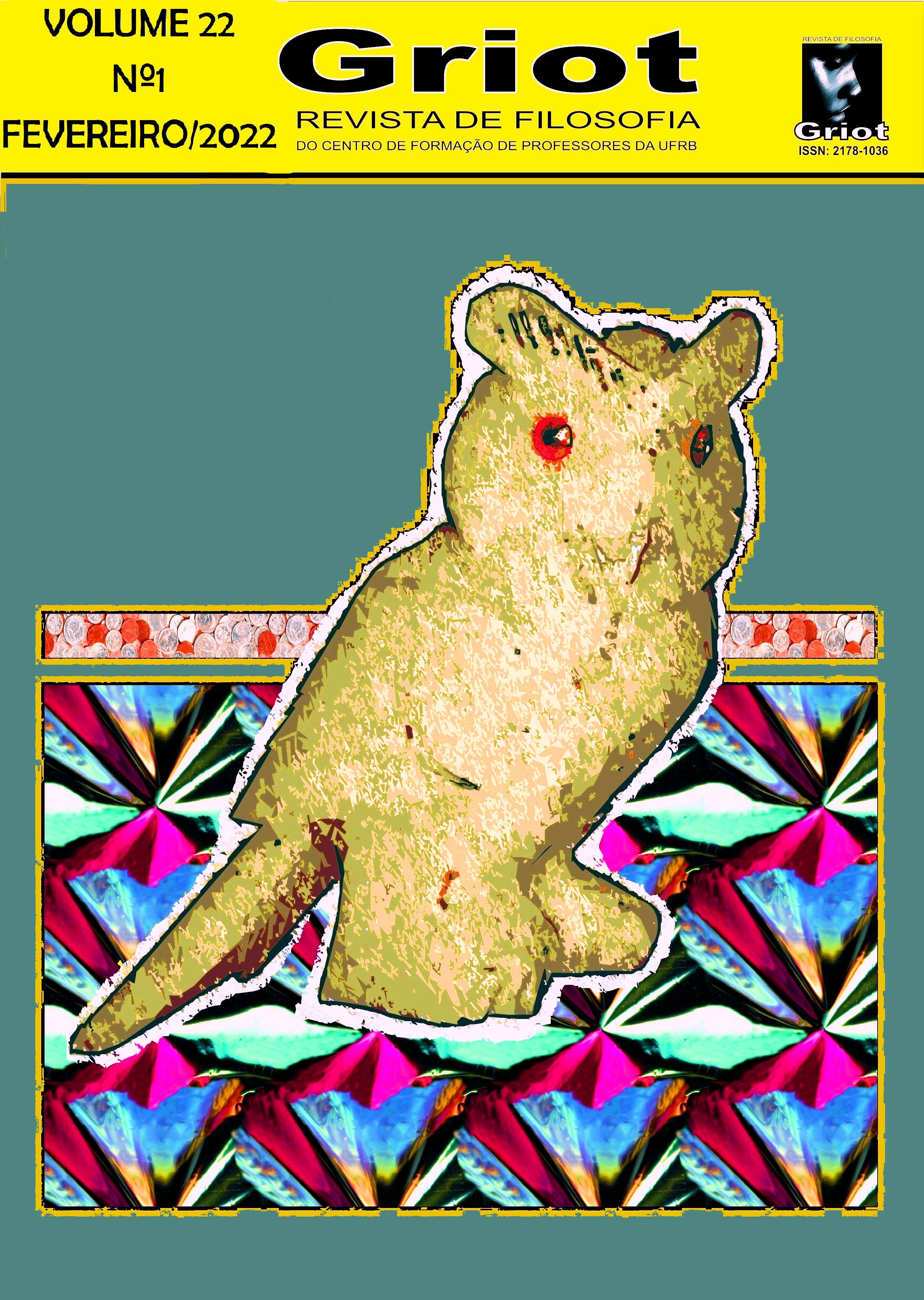Transhumanism and Artificial Intelligence: the problem of an ontological limit
DOI:
https://doi.org/10.31977/grirfi.v22i1.2539Keywords:
Homo sapiens; Artificial Intelligence; Ontology; Technology; Transhumanism.Abstract
The problem of the ontological limit of Artificial Intelligence and transhumanism in contrast with the ontology of Homo sapiens is discussed. Beyond the so-called exogenous or endogenous integration (with their respective prototypes, the android and the cyborg), the scenario of a technological singularity seems to materialize in entities that synthesize biology and technology, for example, by means of a download or transbiomorphosis that translates the neural networks of our mind into the memory of a computer. This is a hybridization that warns us about the advent of new species that could leave Homo sapiens behind. If the human/machine synthesis is the limit desired by the transhumanist program, this limit seems to have crossed, in turn, the very ontological limit of the human, on which science, philosophy and religion had so far more or less agreed –each presenting their own cards.
Downloads
References
BENÍTEZ, Raúl, ESCUDERO, Gerard, KANAAN, Samir y MASIP RODÓ, David. Inteligencia artificial avanzada. Barcelona: UOC, 2014.
BOSTROM, Nick. Anthropic Bias: Observation Selection Effects in Science and Philosophy. New York: Routledge, 2002.
CARDOZO, John & MENESES, Tania. Transhumanismo: concepciones, alcances y tendencias. Análisis, vol. 46, n. 84, p. 63-88. 2014.
ENGELHARDT, Hugo Tristram. Los fundamentos de la bioética. Madrid: Paidos, 1995.
GAYOZZO, Piero. Singularidad tecnológica y transhumanismo. Teknokultura. Revista de Cultura Digital y Movimientos Sociales, vol. 18, n. 02, p. 195-200, 2021.
HEIDEGGER, Martin. Carta sobre el humanismo. Madrid: Alianza, 2000.
HERRERA, Leandro y MUÑOZ, Diego. Inteligencia Artificial y lenguaje natural. Lenguas Modernas, vol. 19, p. 157-165, 2017.
KOVAL, Santiago. Convergencias tecnológicas en la era de la integración hombre-máquina. Razón y Palabra, n. 75, p. 1-17, 2011.
LÓPEZ, Manuel. Las narrativas de la inteligencia artificial. Revista de Bioética y Derecho, n. 46, p. 5-28, 2019.
MESEGUER, Pedro y LÓPEZ DE MÁNTARAS, Ramón. Inteligencia Artificial. Madrid: CSIC, 2017.
MIAILHE, Nicolas & HODES, Cyrus. The Third Age of Artificial Intelligence. Field Actions Science Reports, n. 17, p. 6-11, 2017.
O’CONNELL, Mark. To Be a Machine. Londres: Granta Books, 2017.
POSTIGO, Elena. Transhumanismo y Post-humano: principios teóricos e implicaciones bioéticas, 2011. Disponible en: <https://tinyurl.com/y7bzvzcw>. Acceso en: 10 de abril de 2021.
PUGLISI, Gianni. Un nuevo interlocutor en las relaciones entre filosofía y poesía: la estética computacional de Hofstadter. En: VATTIMO, Gianni (comp.). Filosofía y poesía: dos aproximaciones a la verdad. Barcelona: Gedisa, 1999, p. 65-74.
SÁNCHEZ, Teresa. La propuesta transhumanista para la abolición del género. Pieza del rediseño de la naturaleza humana. Aperturas Psicoanalíticas, n. 66, p. 1-22, 2021.
SÁNCHEZ, Carlos Manuel (09 de agosto de 2015). Transhumanismo: el último paso en la evolución humana. XL Semanal.
SLOTERDIJK, Peter. Reglas para el Parque Humano. Una respuesta a la “Carta sobre el Humanismo”. FiloXarxa Diccionari enciclopèdic de filosofia, p. 1-21, 1999. Disponible en: < https://tinyurl.com/5fzaffju>. Acceso en: 04 de mayo de 2021.
TORRA, Vicenç. La inteligencia artificial. Lychnos. Cuadernos de la Fundación General CSIC, n. 07, p. 1-6, 2011.
VACCARI, Andrés. La posthumanidad como un bien objetivo: los peligros del futurismo en el debate sobre la optimización genética humana. Acta Bioethica, vol. 20, n. 02, p. 237-245, 2014.
VILLARROEL, Raúl. Consideraciones bioéticas y biopolíticas acerca del transhumanismo. El debate en torno a una posible experiencia posthumana. Revista de Filosofía, vol. 71, p. 177-190, 2015.
Downloads
Published
How to Cite
Issue
Section
License
Copyright (c) 2022 Leopoldo Tillería Aqueveque

This work is licensed under a Creative Commons Attribution 4.0 International License.
The authors who publish in Griot: Revista de Filosofia maintain the copyright and grant the magazine the right of first publication, with the work simultaneously licensed under the Creative Commons Attribution 4.0 International License, allowing sharing and adaptation, even for commercial purposes, with due recognition of authorship and initial publication in this journal. Read more...









































































